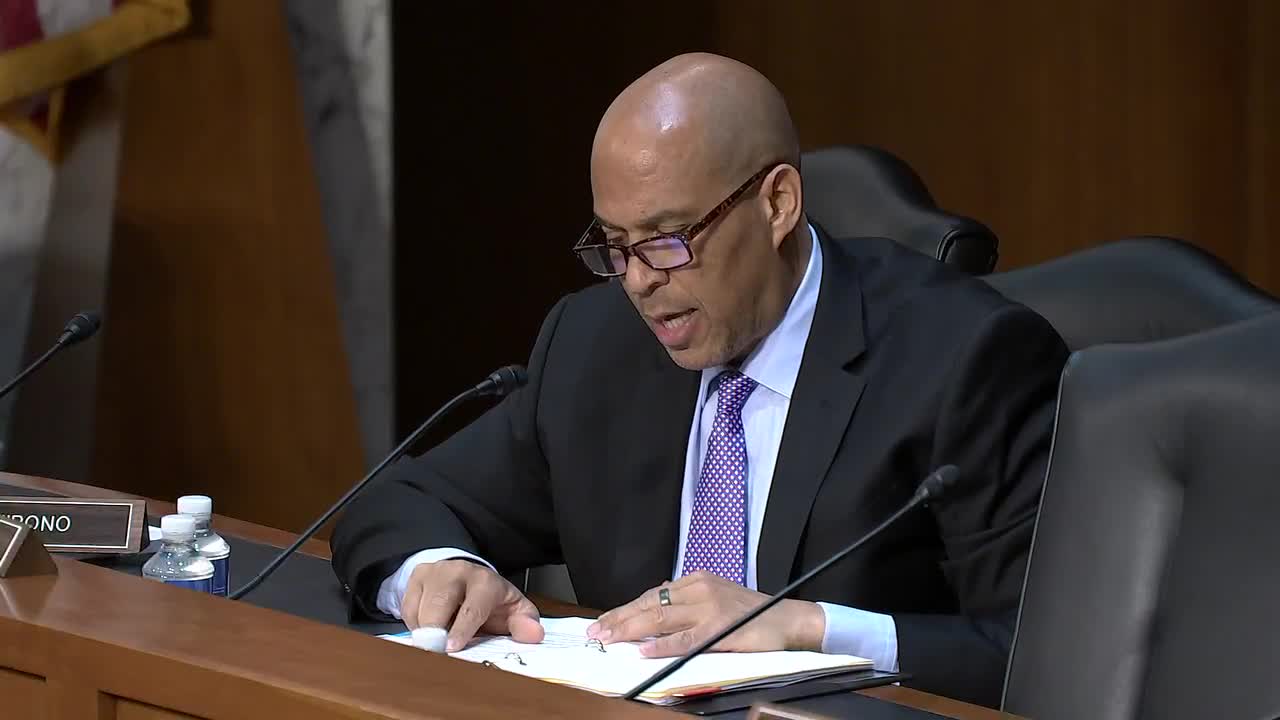Mr. Davis condemns Democrats as Marxists and advocates against censorship
July 30, 2025 | Judiciary: Senate Committee, Standing Committees - House & Senate, Congressional Hearings Compilation
This article was created by AI summarizing key points discussed. AI makes mistakes, so for full details and context, please refer to the video of the full meeting. Please report any errors so we can fix them. Report an error »

In a charged atmosphere, the U.S. Senate Committee on the Judiciary convened for a nomination hearing that highlighted deep political divides. As the meeting unfolded, Mr. Davis, a key speaker, did not hold back in his criticism of the Democratic Party. He described them as "relentless and evil," labeling them as Marxists who harbor a disdain for America. His remarks struck a chord, reflecting a growing sentiment among some lawmakers that the ideological battle lines are becoming increasingly stark.
The hearing, which focused on the nomination of a judicial candidate, quickly shifted from procedural discussions to a broader commentary on the current political climate. Davis's accusations of censorship resonated with certain committee members, who echoed concerns about free speech and the perceived overreach of government in regulating discourse.
As the session progressed, the committee members grappled with the implications of these statements, weighing the importance of judicial independence against the backdrop of a polarized political landscape. The discussions underscored the challenges facing the judiciary as it navigates a world where political affiliations increasingly influence perceptions of justice and fairness.
In the end, the hearing served not only as a platform for evaluating a nominee but also as a reflection of the contentious atmosphere that defines contemporary American politics. As the committee prepares to make its recommendations, the echoes of Davis's words linger, prompting questions about the future of bipartisan cooperation in the Senate.
The hearing, which focused on the nomination of a judicial candidate, quickly shifted from procedural discussions to a broader commentary on the current political climate. Davis's accusations of censorship resonated with certain committee members, who echoed concerns about free speech and the perceived overreach of government in regulating discourse.
As the session progressed, the committee members grappled with the implications of these statements, weighing the importance of judicial independence against the backdrop of a polarized political landscape. The discussions underscored the challenges facing the judiciary as it navigates a world where political affiliations increasingly influence perceptions of justice and fairness.
In the end, the hearing served not only as a platform for evaluating a nominee but also as a reflection of the contentious atmosphere that defines contemporary American politics. As the committee prepares to make its recommendations, the echoes of Davis's words linger, prompting questions about the future of bipartisan cooperation in the Senate.
View full meeting
This article is based on a recent meeting—watch the full video and explore the complete transcript for deeper insights into the discussion.
View full meeting